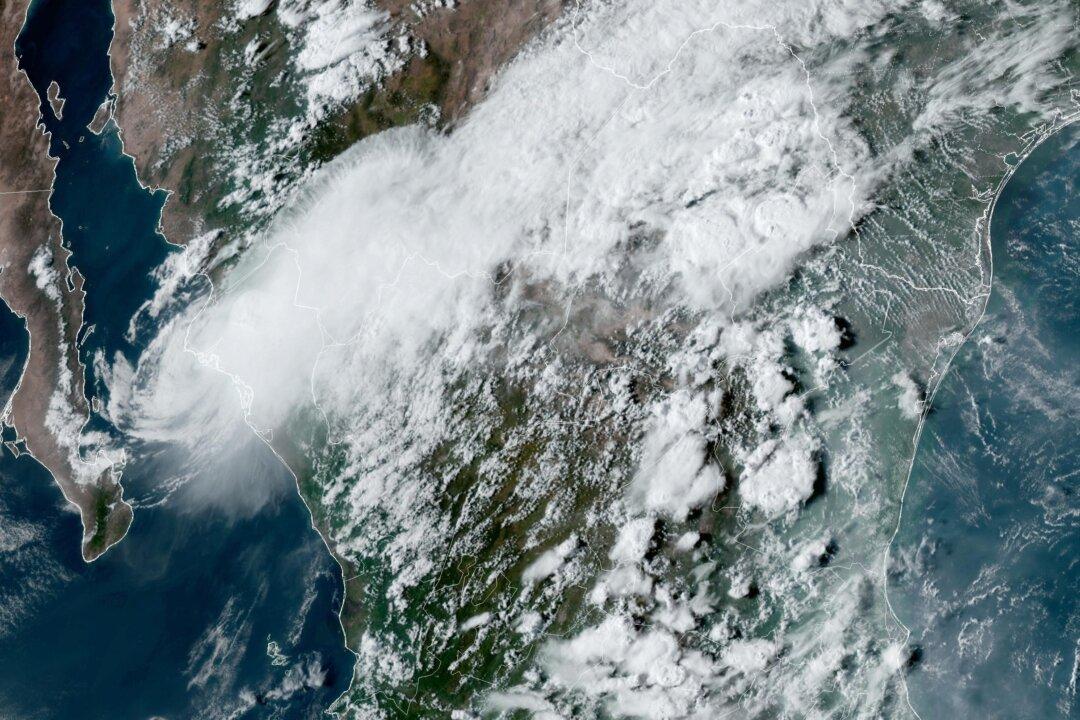MEXICO CITY—Storm Ileana has weakened to a tropical depression, the National Hurricane Center said Sunday.
The tropical storm formed Thursday off Mexico’s Pacific coast as it moved ashore, making landfall on the coast of the Mexican state of Sinaloa Saturday, a day after it pounded the resort-studded Los Cabos.





